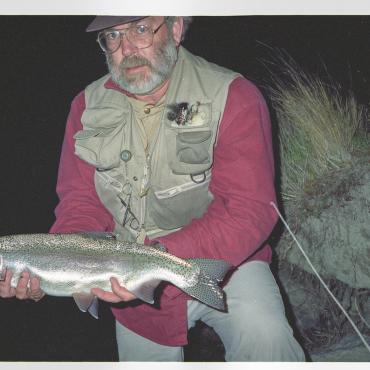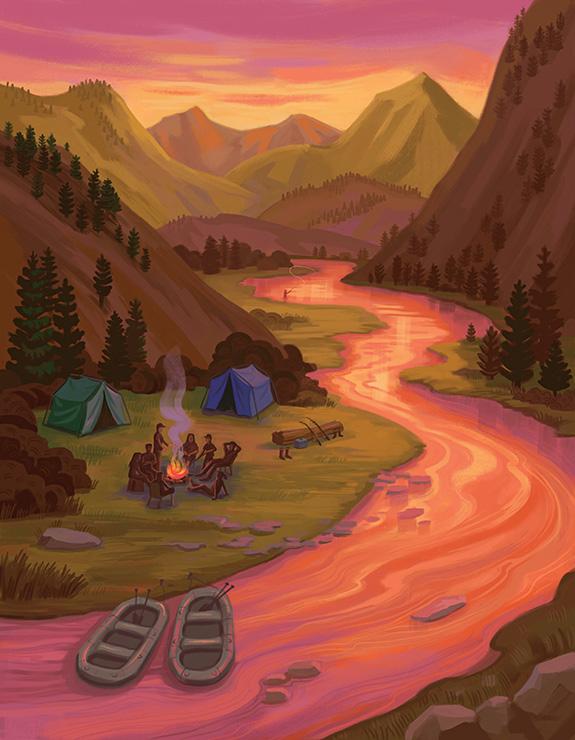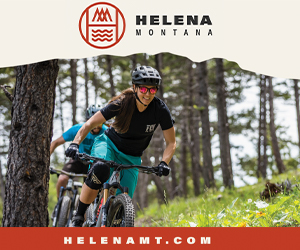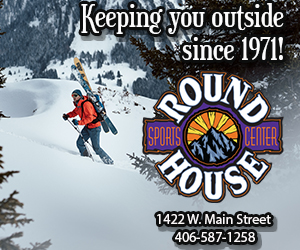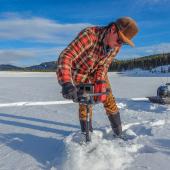River Days
Summers on the Big Hole.
It seems like a lifetime ago.
In the ’70s and ’80s, my wife Pam and I and our two kids would meet my best friend Dick McGinnis and his wife Diane and their two kids on the upper Big Hole River for a week of camping and fly fishing.
Dick—Muggs to his friends—grew up in Anaconda, where his wonderful father, Bill McGinnis, a former gold miner in his early life, worked in the smelter. We often camped at Frank’s Hole, named after their uncle Frank, an early fly-fishing legend who invented the precursor to the girdle bug. It was a wet fly tied on a size-8 snelled hook using fine strips of rubber for the legs. He got the rubber from cutting up women’s girdles, hence the name. Uncle Frank called it the McGinnis Rubberlegs.
I still have one of those aging beauties mounted on its presentation cardboard. Its rubber legs have long since crumbled, but you can imagine the sensation those flies created with appendages that pumped in the water when you stripped in your line. The fish had never seen anything like it and Uncle Frank sold them like hotcakes.
Every year, we eagerly awaited our visit to Frank’s Hole. There was plenty of water in those years, even in August, and the river was filled with healthy trout, whitefish, and grayling. Like clockwork, at 11am every morning, the trico hatch began. Tiny mayflies with black bodies and transparent wings filled the air and blanketed the river as far as you could see. The fish went crazy, rising everywhere, rousing us from our late-morning snoozing, transporting us hip-deep to the big pools, casting to the feeding fish.
Most of the trout we caught were safely returned to the river, except for some brookies that, on occasion, made a special breakfast. The whitefish were regular dinner fare, wrapped in tinfoil and nestled in the coals among the Idaho potatoes. With a little salt and pepper sprinkled on top, they were the tastiest steamed fish ever. My mouth waters thinking of them now. Unforgettable were evenings by the campfire, under an immense dome of stars, the Perseids meteor shower, and the Milky Way.
By ages six or seven, our daughter Joss and son David had mastered their Zebco spinning outfits, taken their share of trout on Muddler Minnows, and were ready to start fly fishing. The campsite meadow was a perfect place to practice the art of casting and eventually they had it down. Mornings would find Muggs on one side of the meadow with his kids, Erin and Tony, and me on the other side with Joss and Dave, both of us barking out the same mantra to the kids: “Hesitate on the back cast and keep the rod tip between 10 o’clock and 2 o’clock!”
I remember the morning I took David over to a side channel. The mayfly hatch was cresting and a pod of brookies boiled on the tricos as they floated down in front of us. I put on a size-16 royal Wulff and showed him how to cast upstream to get a nice drift on the fly, without dragging it in the current. His first cast brought a rise but he struck a little late, missing the fish. On the next cast, he struck just right, fought the fish well, and brought it to our feet. The brookie in his hand reflected the morning sunlight of the Big Hole Valley, a prettier site yet unseen. After releasing the fish, he proceeded to catch one after another without leaving that spot, hooking him ever deeper into a life of fly fishing.
Sometime during those summers, we started taking float trips in search of big browns and rainbows inhabiting Maiden Rock Canyon. The float from Divide to Melrose took the better part of a day, depending on how many times you parked the raft to fish the good runs and pools. Our rafts were fairly Spartan; rowing platforms were hard to find in those days. We eventually built our own out of plywood but before that, we just sat on the flotation thwarts and used the rubber oarlocks that came with the rafts, commando style—it worked perfectly.
One day in particular stands out in my memory. Muggs and I put in at Divide at about 10am on a clear morning, with some mayflies already beginning to show. The fishing was a little slow; the runs along the river’s edge gave up a few fish and we stopped often to work the pools. We were taking our time—Maiden Rock Canyon time. By mid-afternoon, the fish shut off completely as storm clouds began to build above the canyon.
The classic Montana afternoon thunderstorm had arrived with hail and lightning breaking over the river. We rowed to the bank and pulled the raft up into an alder thicket. Turned upside down, the raft made a good shelter from the dime-size hail pummeling everything around us. We had our sandwiches and beer, waiting outing the storm. After an hour, it started to clear and we knew we had to get back on the river if we were going to get to Melrose by dark.
It was my turn to row, and after an hour of slow fishing, storm clouds reappeared and hailstones smacked the water around us. Just then, the fishing turned on. Muggs was hooking a nice fish every cast. At one point, the tip section of his fly rod fell into the water and he ended up bringing in a big rainbow by hand. After retrieving his rod tip from the water, the mayhem continued—me rowing upstream to stay in the pool with the rising fish, Muggs in fly-fishing Nirvana.
With all the action, I hadn’t noticed that the raft was filling up with hail or that my feet were gradually sinking from view. I was wearing tennis shoes, jeans, and a t-shirt; no rain jacket, no extra clothes, and no dry bag.
Muggs, with a little more sense, was wearing his usual hip boots and a heavier shirt. Just when I was starting to feel like the olive in a martini on the rocks, the storm drifted away and the fish stopped rising. Blood pressure back to normal, we realized that we were a couple of hours out of Melrose with the sun starting to fall. Fishing was definitely over. Now the problem was getting to Melrose before we—mainly me, with clothes and tennis shoes totally soaked—succumbed to hypothermia.
After scooping the hail out of the raft, we started downriver. We both wanted to row—a rarity on any of our float trips—to keep warm, but I was the wettest and coldest and stayed on the oars for more than an hour. Putting on a life jacket and cinching it tight relieved some of the shivering cold and hypothermia worries.
When darkness arrived, Muggs took the oars, pumping as fast as he could. After a couple more rowing changes, we started to see lights from the ranches north of Melrose. Soon the town lights were showing over the willows. One more bend in the river and there was the bridge. We beached the raft, pulling it up next to the sheep corral just north of the bridge. Leaving it there with all of our fishing gear, we headed up the road to the town café. After some coffee royales—half coffee, half Jim Beam—we started to shake off the river chill.
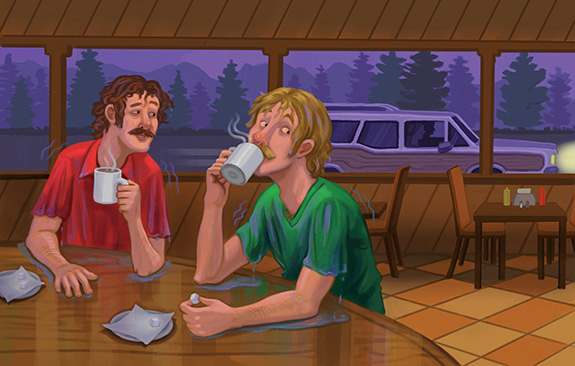
Just then, I saw Muggs’s old station wagon go past the window of the bar, headed for the takeout. The plan that morning was for our wives to drive down from the campsite and meet us at the landing at dark. Instead of rushing back to meet them at the raft, we leaned deeper into our barstools. We knew they would know where to find us when they saw the raft and equipment, minus the fishermen.


